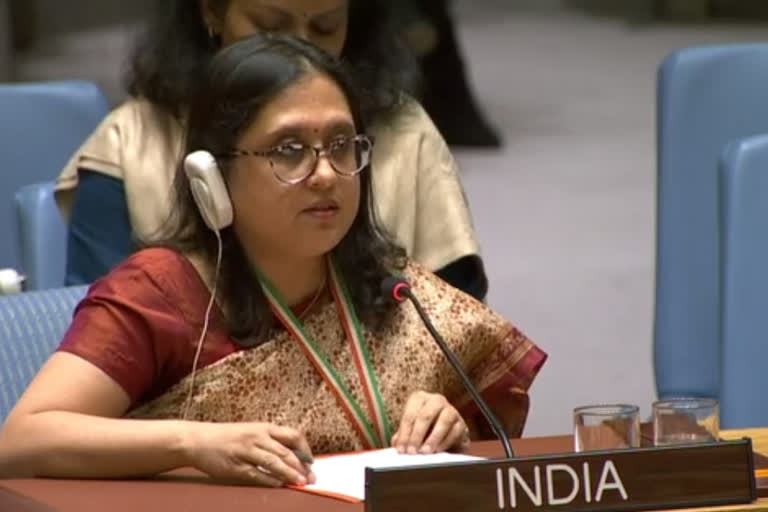United Nations: The international community has ignored the anti-India propaganda by Pakistan, the source of virulent terror, an Indian diplomat has said.
Reacting to Pakistan's statements against India during a General Assembly debate on Culture of Peace on Thursday, Paulomi Tripathi, a first secretary in India's mission, said, "The international community has not paid attention to such deceitful propaganda for coveting territory. We are confident that this would be the case in the future as well."
Tripathi did not mention Pakistan by name, but it was clear that she was referring to it coming after its attacks on India at the meeting.
"Virulent terror emanating from this territory threatens to destabilize peace globally. Yet, with pathological obsession this delegation makes veiled baseless allegations on internal situations of other countries," she said.
Moreover, she said women are oppressed and minorities are persecuted there.
Read Also: Sri Lanka firmly committed to SAARC: Gotabaya Rajapaksa
Likening Pakistan's concern for human rights and the culture of peace to a fox guarding a henhouse, Tripathi said that it hardly comes as a matter of surprise for those who have witnessed their many attempts to masquerade as the champions of a culture of peace. They besmirch the spirit of cooperation by spinning false narratives for political gains.
She said that education and awareness generation plays a key role in the process of moving from a culture of war to a culture of peace by transforming individual behavior and institutional practices.
But in Pakistan children and youth are given guns instead of books, the first secretary added.
Of the 193 UN members, only three -- Malaysia, Turkey, China -- have raised the Kashmir issue during the high-level meeting in September, and Beijing has even-tempered it with a reference to bilateral agreements in solving the problem -- a reference to the Simla Agreement that makes disputes bilateral according to India.
Since then, no other country has picked up Pakistan's line on Kashmir and its allegations of human rights abuses in India which its diplomats slip into as many discussions as possible regardless of the subject.
Read Also: Japanese PM Abe postpones India visit over CAB unrest



